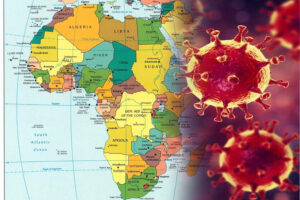|
|
|
| Race-based data shows that Black Canadians are far more likely to get sick and be hospitalized for COVID-19 than other ethnic groups. A new study looking at antibodies in the blood of Black Canadians aims to understand the reasons in an effort to reduce the impact of the disease on Black communities.
The study is being led by Dr. Upton Allen, chief of infectious diseases at the Hospital for Sick Children in Toronto. He says the data shows that across North America, Black communities are disproportionately affected by the pandemic, according to data from cities such as Toronto and Ottawa, and organizations such as the Edmonton-based African Canadian Civic Engagement Council and the Innovative Research Group. In Toronto, for example, data from May 20 to July 16 found that Black patients made up 21 per cent of COVID-19 cases, even though they were only nine per cent of the population. „What is less clear in the Canadian context is why?” Allen said. „We suspect that it has to do with the types of exposures that people have. However, we really need the data to substantiate that.” Researchers suspect that a number of risk factors might play a role: the work that people in the communities do, including how many are front-line workers and how many work several different jobs at different locations to make ends meet; living conditions, such as crowded, multigenerational homes; and pre-existing medical conditions that can increase risk, such as obesity and diabetes, which are often associated with poverty. In order to find out if that’s the case, the study will be recruiting 2,000 Black Canadians and 1,000 non-Black Canadians from across the country, including both adults and children over two years old. Participants will answer a questionnaire and do a blood test. The study aims to show: the extent to which certain communities are protected by „herd immunity”; the biggest risk factors in certain communities; and opportunities for support, such as providing a place for infected people to self-isolate. |

Black Canadians get sick more from COVID-19. Scientists aim to find out why
0



